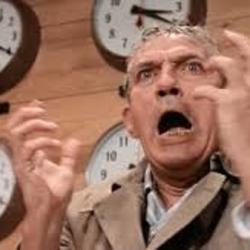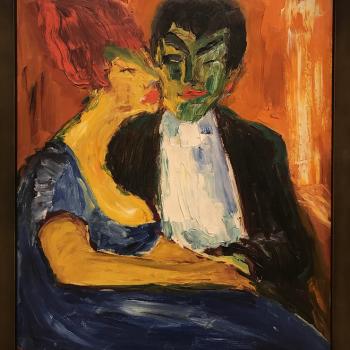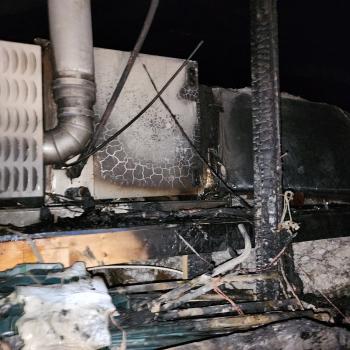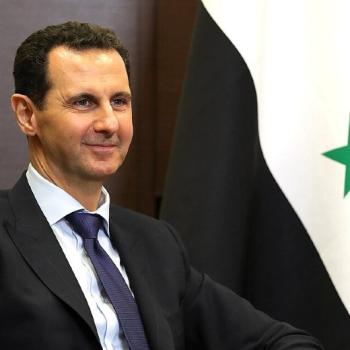Editors' Note: This article is part of the Patheos Public Square on Religion and Visual Art. Read other perspectives here.
This title alone may draw curiosity. It's not often that the words "responsibility" and "artists" are spoken in a single breath. Those who advocate freedom of expression and self-expression would find the word "responsibility" too narrow and restrictive. Those who desire a moral culture will see "artists" as the last group of people to expect that from. They are, at least, separate domains, right?
Celebrity culture reshapes itself like play dough every so often, and recently, these supposed separate domains have ended up in the same mush. What are we to make of the wedding vows taking place during the Grammys when artists took over the domain of what is traditionally considered moral territory, the realm of marriage? Will the Oscars produce more memorable moments this year — not the kind of attention to Jennifer Lawrence's slip as she received her Oscar, but something, say, about the #JeSuisCharlie meme? After the events in Paris, freedom of expression clearly does belong in the domains of morality and justice. Shall this year's Oscars be another moral issue moment, when celebrities lead in solving problems in the world?
Actually, the title of this article is not something I created for Patheos. It's a title of a series of essays by a French Catholic philosopher named Jacques Maritain. For a lecture he gave at Princeton University in 1951 he wrote:
The fact is by nature Art and Morality are two autonomous worlds, with no direct and no indirect subordination between them. There is a subordination, but extrinsic and indirect. It is in this extrinsic and indirect subordination which is disregarded both by the anarchistic claim that the artist must be completely irresponsible: it does not matter what one writes — then any subordination of whatever of art to morality is simply denied — and, at the opposite extreme, by the totalitarian claim that artists must be completely subservient: what one writes must be controlled by the state. (The Responsibility of the Artist, Jacques Maritain [New York: Scribner's, 1960], 22)
Paris today, after the horrors of recent days, and Maritain's earlier days of foreboding darkness between the two Great Wars share similar, but distinct, tensions of culture and morality. In Maritain's time, to do art was literally to stand for freedom, and therefore being an artist was, in itself, a moral proposition against totalitarian pressures. Thus, it is intriguing that Maritain still calls them "autonomous worlds." Maritain spent a great deal of time with Parisian painter Georges Rouault, who had much to do with Maritain's and his wife's conversions to Catholicism. Being a Catholic in France, or even having a conversation about faith, during the war, was not too convenient or in vogue. It was to stand for moral courage, religious conviction, and freedom of expression at the same time.
But today, the "extrinsic" reality of culture has been hijacked by extreme factions; thus, the option seems limited to either that of the anarchist anything-goes freedom of an artist, or the totalitarian everything-must be-controlled-by-the-state-or-religion faction. So one lives in a tension between the anarchist ideal of drawing the most offensive cartoon possible or the religious fundamentalist opposition. There is no mediated effort to create a nuanced path toward a conversation that affirms humanity. I call this mediated approach "Culture Care," as opposed to a typical "Culture Wars" entrapment.
Actually, the arts and entertainment offerings, especially the memorable ones, do mediate our experiences. I have not seen all of the offerings being highlighted this year, but I do know that many of the movies address much more than the surfeit issue and delve into the meaning of true love (Intersteller and Boyhood), our struggle for a just society (Selma), and even a desperate look at the celebrity culture (Birdman). The deadbeat dad of Boyhood undergoes one of the most startling character transformations on the screen that I have seen in some time. What Ethan Hawk does — in portraying someone who is too immature for love and relationships, transformed unexpectedly to a mature, loving father — is give an artful, and nuanced, portrayal of social responsibility. In doing so, we witness the miraculous: a film teaches us that what we start out to be, incompetent and unwilling, may not after all be our end point.




